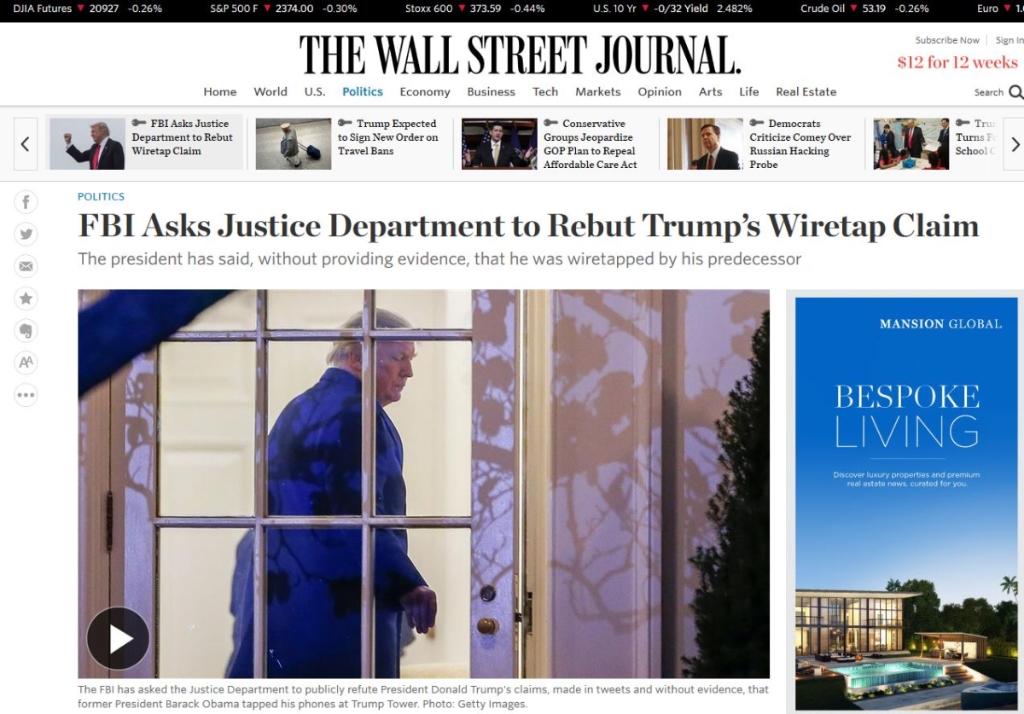Supporting a Claim with Evidence
 Business Communication students learn the importance of supporting claims with evidence in order to persuade an audience. President Trump's claim that former President Obama wiretapped his phone is being questioned by many reporters and the FBI.
Business Communication students learn the importance of supporting claims with evidence in order to persuade an audience. President Trump's claim that former President Obama wiretapped his phone is being questioned by many reporters and the FBI. 
FBI Director James Comey, in the news most recently for identifying more of Hillary Clinton's emails days before the election, seemingly without evidence, has asked the Justice Department to rebut the President's claims and to deny an investigation. This is an extraordinary request because, as The New York Times reports, this action "would be a major rebuke of a sitting president."
The Times also traces the claim, which started on a conservative radio show:
It began at 6 p.m. Thursday as a conspiratorial rant on conservative talk radio: President Barack Obama had used the "instrumentalities of the federal government" to wiretap the Republican seeking to succeed him. This "is the big scandal," Mark Levin, the host, told his listeners.
That was enough for President Trump to tweet his disgust.
I sometimes compare headlines in The New York Times and The Wall Street Journal. Today, they are both running this story as front page news, and even the more conservative WSJ says President Trump made this claim without evidence. The subtitle reads, "The president has said, without providing evidence, that he was wiretapped by his predecessor."
Discussion:
- What's your view of the president's response? Is it hasty, or did he have enough to go on?
- What should the Justice Department do with the president's request and James Comey's recommendation?
- What's the danger of the president's accusation? What if he's wrong? On the other hand, what's the danger of ignoring the potential violation? What if he's right?
